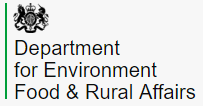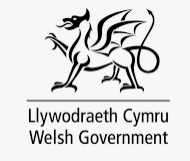Draft update to the UK National Implementation Plan for the Stockholm Convention on Persistent Organic Pollutants (POPs)
Overview
We want to know what you think about our 2021 draft update to the UK National Implementation Plan (NIP) for the Stockholm Convention on Persistent Organic Pollutants (POPs). The update covers “new POPs”, which have been more recently listed under the Stockholm Convention and were not covered in our last NIP update in 2017. It sets out the information available to us for these substances and our plans to monitor and eliminate them in the future. It also provides a short update on the older POPs and actions taken since the last NIP update.
Why your views matter
Defra, on behalf of the Devolved Administrations, has produced a draft update to the National Implementation Plan (NIP) for POPs. The updated draft NIP sets out how the UK has implemented its obligations under the Stockholm Convention to which the uk is a party. This includes steps to eliminate or reduce the impact of POPs on the environment by assessing the presence of a new POPs substance and, where appropriate, sets out further actions to achieve this aim. An update is required periodically to explain how changes to the Stockholm Convention have been implemented, including when new POPs substances are listed for restriction, elimination or reduction, or the elimination of unintentional production.
This NIP update also reports on delivery of commitments made in earlier plans and sets out further work proposed. This will contribute to the delivery of Government’s 25 Year Environment Plan, the Welsh Minister’s Natural Resources Policy, the Environment Strategy for Scotland, and the goals of the Environment Strategy for Northern Ireland, to protect and enhance the environment for future generations. Strategies for clean air and resources and waste also complement the actions and plans set out.
Defra and the Devolved Administrations want to consider the views of all stakeholders with an interest. This will include the chemicals industry, manufacturers of goods, importers, exporters, recyclers, users, re-users, the waste industry, academics, environmental / health organisations and the public. Respondents can provide views on future plans and any additional information and evidence that supports our aim to eliminate or reduce the impact of POPs in the environment.
The initial UK NIP was published on the Stockholm Convention website in 2007. All subsequent publications have been updates to this. This update has been drafted by the four governments of the UK and relevant arm’s length bodies. A formal consultation will enable due consideration of the range of views before a final revised NIP is published on the Stockholm Convention website later in 2021.
You can submit your views through this survey. Responses must be submitted by 14th May 2021. Should you have any issues or questions, please do get in touch via Defra's Persistent Organic Pollutants mailbox POPs@defra.gov.uk
To complete the consultation please follow the procedure below. We strongly recommend that you view the related documents on the GOV.UK webpage before starting the consultation questions. This includes the revised draft NIP document, which the consultation questions relate to directly. The consultation document can also be viewed in each section of the consultation questions.
Thank you for taking the time to provide your views.
What happens next
The consultation has now closed. Thank you for your input. We will be assessing the feedback and comments from all respondents and updating the results. A summary report of the consultation will be published on GOV.UK in due course.
Audiences
- Charities/Voluntary Organisations
- AWBs
- Environmental campaigners
- Animal welfare campaigners
- Trade Unions
- Employment Agencies
- Food Business Operators
- Licensed Gangmasters
- Food Industry
- Vets
- Operators of animal gatherings
- Abattoir Operator
- Livestock show ground operators
- Manufacturers of livestock identifiers
- All Marine Users
- Government Departments
- Government Agencies
- Devolved Administrations
- Coastal Members of Parliament
- Coastal local authorities
- National Park Authorities
- Recreation sector
- Coastal Management sector
- Aggregates sector
- Energy sector
- Industries and professional services
- Ports and Harbour Authorities and Estuaries
- Water/water Industry sector
- IFCAs
- Angling Organisations and Trade
- Fishing Focus individual recipients
- Water Abstractors
- Environmental professional services
- Estate Agents
- House Building Industry
- Property Management
- Legal and Conveyancing Professions
- Households
- Local Authorities
- Non-Household Customers
- Consumer Groups
- Commercial Fisheries Organisations
- Fisheries Producer Organisations
- Waste Producers and Handlers
- Business/Private Sector
- Policy Teams
- Pet Owners
- Pet Interest Groups
- Pet Carriers
- Transport Organisations
- Veterinarians
- Local Authorities
- Producer Compliance Schemes
- WEEE Treatment Facilities
- Waste Management Companies
- Electrical re-use organisations
- All Defra staff and ALBs
- Non-Government Organisation
- Retail Industry
- Manufacturing Industry
- Member of the General Public
- Landowners and their representative bodies
- Walkers
- Horse riders
- Families
- Students
- Farmers
- Fishermen
- SME businesses
- Energy suppliers
- Water suppliers
- Leisure industry
- Tourism industry
- Insurance industry
- Horticulture Industry
- Shellfish Cultivators
- Tenant Farmers
- Agricultural Landlords
- Agricultural Valuers
- Land Agents
- Trading Standards Officers
- Environmental Health Officers
- Professional and Membership Organisations/Agencies
- Public Bodies
- Consultants
- Beach Users
- Stakeholders
Interests
- Chemicals and pesticides






Share
Share on Twitter Share on Facebook